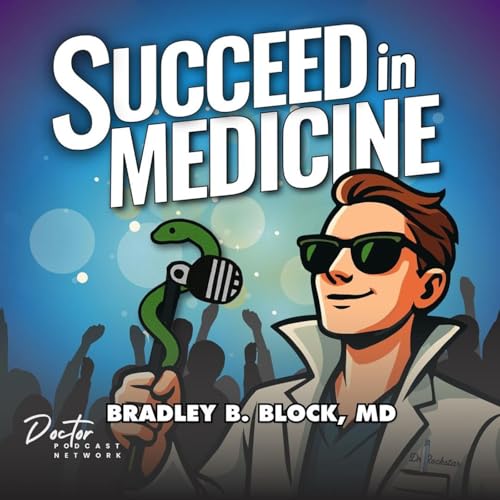How can physicians and their teams deliver exceptional patient experiences, even when things go wrong?
In this episode of Succeed In Medicine Podcast, Dr. Bradley Block interviews Shep Hyken, as he shares practical strategies for elevating patient care, emphasizing that "amazing" service doesn't require grand gestures, it's about being slightly better than average, consistently. Drawing parallels from hospitality giants like the Ritz-Carlton, he explains how using patients' names, setting clear expectations, and leveraging technology like patient portals can reduce friction and build loyalty.
The conversation dives into handling "moments of misery," such as late appointments or scheduling mishaps, with a five-step process: acknowledge the issue, apologize, discuss resolutions, own the problem, and act with urgency. Shep also stresses the importance of creating a patient-focused culture through leadership, training, and hiring for personality fit. He introduces concepts like "destination employment" to foster employee fulfillment and uniqueness, ensuring staff feel empowered to deliver compassionate care. Ultimately, Shep reinforces that patients compare healthcare experiences to top-tier service in any industry, so practices must prioritize convenience, empathy, and proactive communication to stand out.
Three Actionable Takeaways
- Define "Amazing" as Consistent Excellence: Aim to be just 10% better than average every time—through friendly interactions, using patients' names, and meeting expectations reliably—to create loyalty without over-the-top efforts.
- Turn Complaints into Opportunities: Use a five-step process for moments of misery: acknowledge the issue, apologize, discuss fixes with options, own the resolution personally, and act urgently to rebuild trust.
- Build a Patient-Focused Culture: Start with leadership by defining a one-sentence vision for the experience, communicate it repeatedly, train staff ongoingly, role-model behaviors, defend the standards, and celebrate successes to empower your team.
About the Show:
Succeed In Medicine covers patient interactions, burnout, career growth, personal finance, and more. If you're tired of dull medical lectures, tune in for real-world lessons we should have learned in med school!
About the Guest:
Shep Hyken is a customer service and experience expert, award-winning keynote speaker, researcher, and New York Times and Wall Street Journal bestselling author. He has been quoted in hundreds of publications and is the author of eight books, including his most recent, "I'll Be Back: How to Get Customers to Come Back Again and Again." Shep works with companies and organizations that want to build loyal relationships with their customers and employees.
LinkedIn: linkedin.com/in/shephyken
Website: hyken.com
About the Host:
Dr. Bradley Block – Dr. Bradley Block is a board-certified otolaryngologist at ENT and Allergy Associates in Garden City, NY. He specializes in adult and pediatric ENT, with interests in sinusitis and obstructive sleep apnea. Dr. Block also hosts Succeed In Medicine podcast, focusing on personal and professional development for physicians
Want to be a guest?
Email Brad at brad@physiciansguidetodoctoring.com or visit www.physiciansguidetodoctoring.com to learn more!
Socials:
@physiciansguidetodoctoring on Facebook
@physicianguidetodoctoring on YouTube
@physiciansguide on Instagram and Twitter
This medical podcast is your physician mentor to fill the gaps in your medical education. We cover physician soft skills, charting, interpersonal skills, doctor finance, doctor mental health, medical decisions, physician parenting, physician executive skills, navigating your doctor career, and medical professional development. This is critical CME for physicians, but without the credits (yet). A proud founding member of the Doctor Podcast Network!
Visit www.physiciansguidetodoctoring.com to connect, dive deeper, and keep the conversation going. Let’s grow!
Disclaimer:
This podcast is for informational purposes only and is not a substitute for professional medical, financial, or legal advice. Always consult a qualified professional for personalized guidance.
Hosted by Simplecast, an AdsWizz company. See pcm.adswizz.com for information about our collection and use of personal data for advertising.
 32 Min.
32 Min. 40 Min.
40 Min. 33 Min.
33 Min. Jan 27 202624 Min.
Jan 27 202624 Min. Jan 20 202629 Min.
Jan 20 202629 Min. Jan 13 202641 Min.
Jan 13 202641 Min. 31 Min.
31 Min. Dec 30 202532 Min.
Dec 30 202532 Min.
